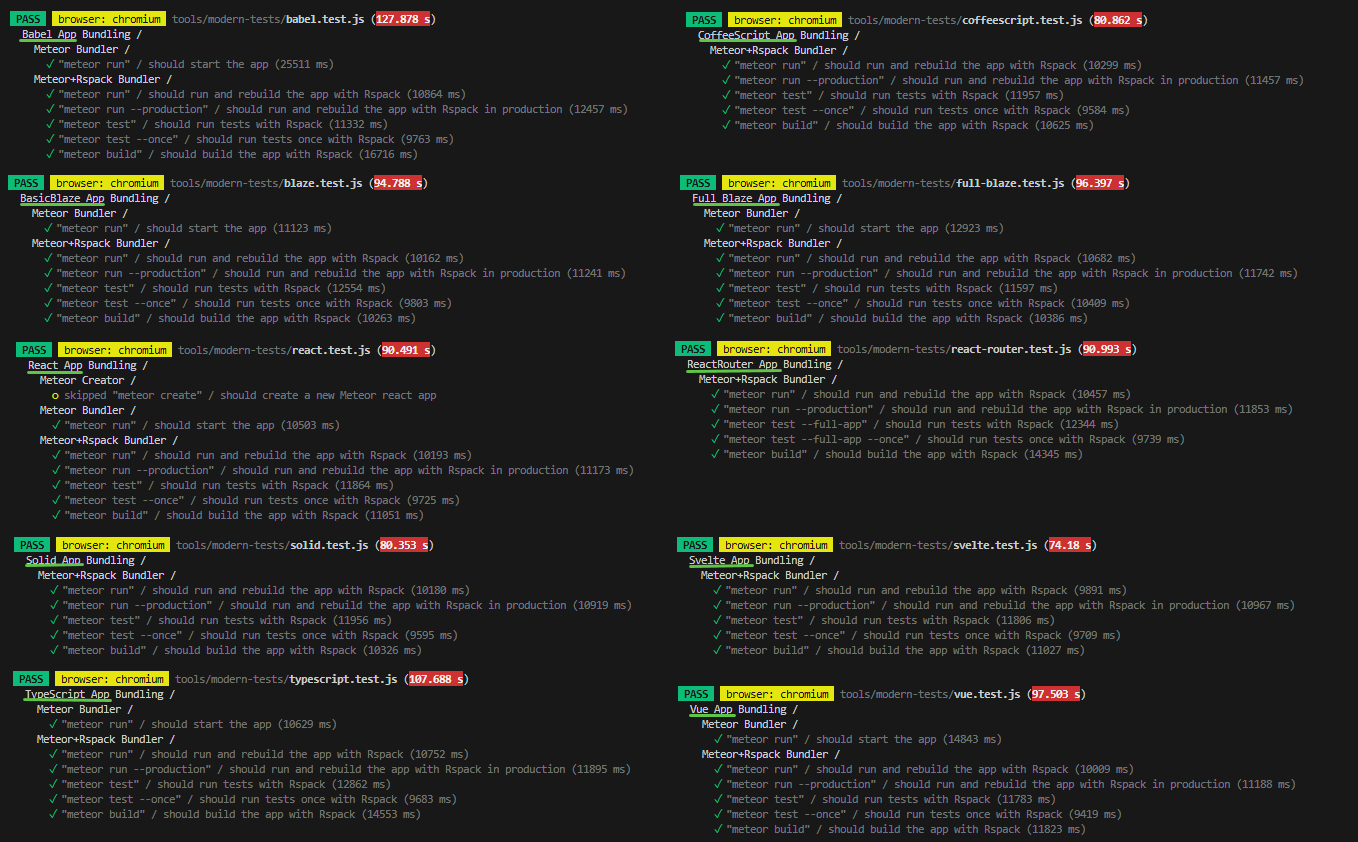To speed up test and make use of all the cores and RAM on the build server, we partition tests with METEOR_IGNORE to only include certain *.tests.* files and then run test processes in parallel on the same circleci “machine”. Each instance gets a unique port and results file.
"test:xunit-first-half": "parallel --xapply --tagstring '{= $_=3000+3*seq() =}' --linebuffer --header : 'INCLUDE_RANGE={RANGE} PORT={= $_=3000+3*seq() =} MOCHA_OUTPUT_FILE=result{#} yarn test:xunit' ::: RANGE a-c d-j k-n",
"test:xunit": "unset MONGO_URL && bash -c 'TEST_CONSOLE_LOGGING=true TYPESCRIPT_FAIL_ON_COMPILATION_ERRORS=1 METEOR_IGNORE=$(server/buildmeteorignore $INCLUDE_RANGE) TEST_CLIENT=0 MOCHA_REPORTER=xunit MOCHA_TIMEOUT=60000 SERVER_MOCHA_OUTPUT=$PWD/mocha/${MOCHA_OUTPUT_FILE:-results}.xml meteor test --once --driver-package meteortesting:mocha --exclude-archs web.browser.legacy --port \"[::]:${PORT:-3000}\"'",
with buildmeteorignore being:
#!/usr/bin/env bash
# builds contents for METEOR_IGNORE to include only test files that start with
# the character range provided as arg1
# OR with invert as arg2 to EXCLUDE that character range
# TEST_PREFIX is set to "app-" when running ui tests since then the test files are named XX.XX.app-tests.ts
echo "# Generated METEOR_IGNORE contents"
if [[ -z $1 ]]; then
# no argument => no contents
exit
fi
RANGE=${1:-a-z}
if [[ $2 == invert ]]; then
PREFIX=""
else
echo "*.${TEST_PREFIX}tests.ts"
PREFIX="!"
fi
# for debugging
# echo >&2 RANGE=$RANGE PREFIX=$PREFIX
echo $PREFIX[$RANGE]*.${TEST_PREFIX}tests.ts

